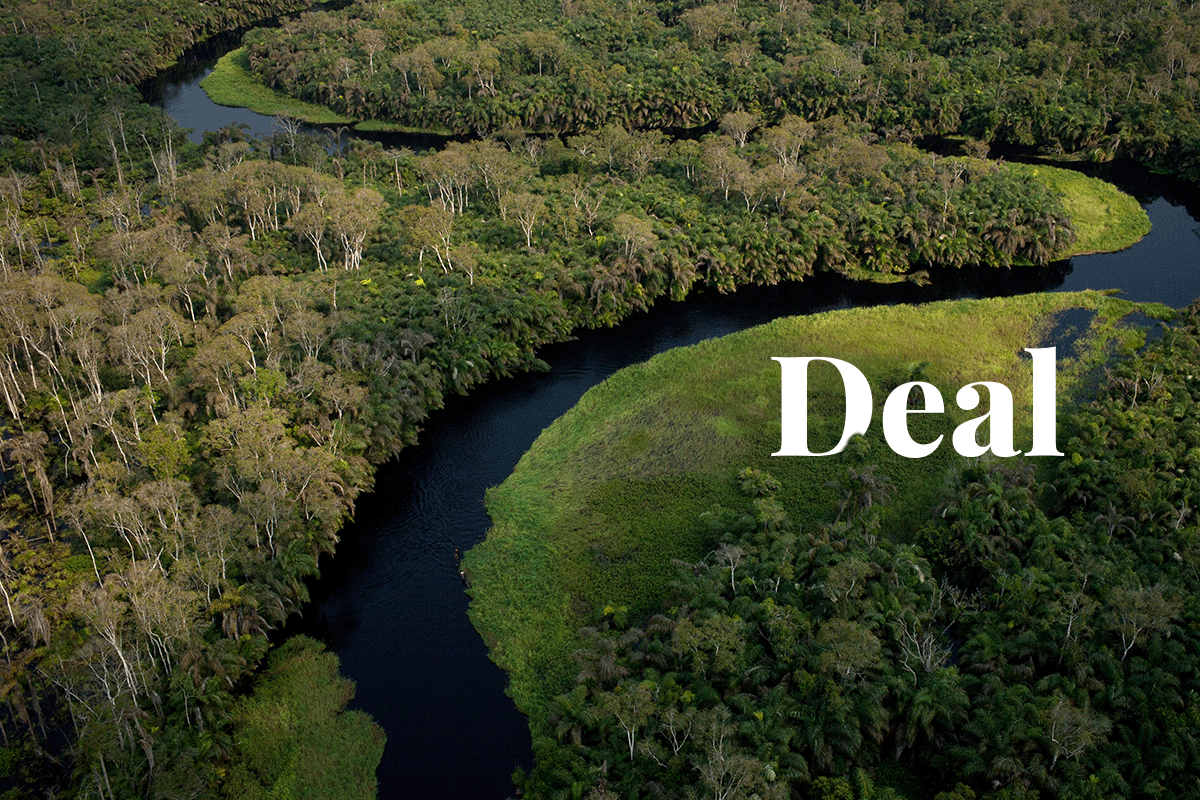The Republic of the Congo has partnered with Renco Group, an Italian construction and engineering firm, to embark on a large-scale reforestation project. The deal, recently finalised near the Congo's capital, Brazzaville, aims to cover approximately 40,050 hectares and earn valuable carbon credits in the voluntary carbon market. With the potential to sequester 30 million tonnes of carbon dioxide by 2025, this initiative seeks to consolidate the economy around forest carbon credits.
 Aerial view of a tropical rainforest in the north of the Congo, Brazzaville.
Aerial view of a tropical rainforest in the north of the Congo, Brazzaville.
As per the agreement, Renco Group will fully finance the project, which includes the creation, monitoring, and quality assurance related to the carbon valuation of the trees planted. In return, Renco Group will receive credits that can be used for its own climate targets or sold in the secondary market. Renco Group is also responsible for raising awareness among local populations about the project, requiring an investment of 53 billion Central African CFA francs ($88 million).
Read more: Carbon trading market soars: valuation set to reach $4.8 trillion by 2031
The project aligns with the Republic of the Congo's national reforestation plan, PRONAR, led by the Ministry of Forests. It primarily involves reforestation with acacia trees and the protection of isolated forest areas. This comes as a significant move, given that between 2002 and 2022, the country lost 396,000 hectares of primary forest, accounting for 42% of total tree cover loss during that period.
Read more: Biodiversity credits: an innovative financing mechanism for conservation
The Republic of the Congo plans to host a conference of forest carbon nations in October, aiming to push for easier international trading of credits from avoided deforestation and restoration projects. Earlier, in May, the Congo's Environment Minister urged financial institutions like the World Bank to simplify procedures for issuing governmental carbon credits, streamlining the process for further carbon credit initiatives.
Overall, this collaboration presents an ambitious effort to combat deforestation, mitigate climate change, and drive sustainable economic growth in the region through carbon credit trading.
At DGB Group, our primary goal is to support nature to prosper through our nature-based projects aimed at effecting a long-lasting impact. Our initiatives deliver top-quality carbon and biodiversity credits that have the power to restore forests and biodiversity and help communities with sustainable development. You can join our mission and contribute to a greener, more sustainable tomorrow.
Start your sustainability journey with DGB



